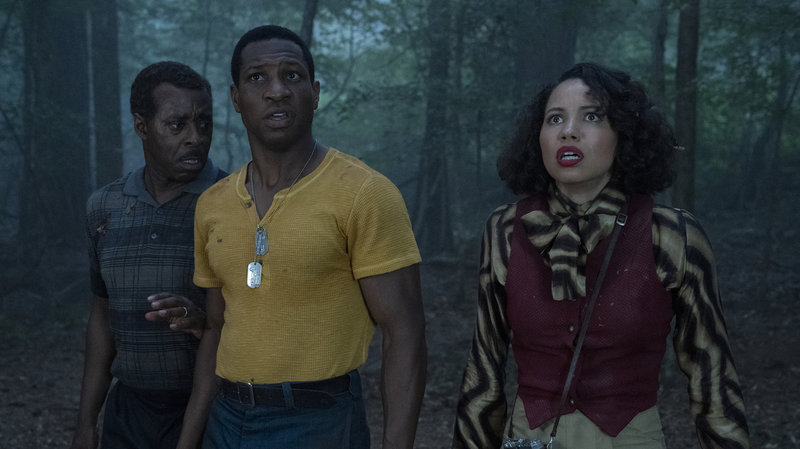
Jordan Peele has made quite a splash in horror since his debut into the genre with Get Out in 2017. He unsettled audiences again in 2019 with the doppelganger thriller Us, helmed writing duties for the Twilight Zone reboot, and contributed to the Candyman remake’s screenplay. While he established his career in comedy, the recent turn to horror brings a refreshing originality with his focus on psychology and tension. This expresses itself in Peele’s unapologetic analysis of systemic racism in American society in all of his work whether he’s directing, writing, or producing. While his latest film is still in the early stages of production, Peele flexed his creative producing muscles with 2020’s almost too-perfectly timed show, Lovecraft Country.
Originally a novel published in 2016 by Matt Ruff, Lovecraft Country was adapted into a highly successful HBO series in 2020 under the creative direction of Misha Green and a powerhouse of a writing team. What really made the show an incredible piece of storytelling was how the plot took inspiration from the mythos of cosmic horror champion – and blatantly HP Lovecraft and created a story in which Black characters are the heart, soul, and family. Set in 1950s America, in which racism and segregation were unapologetically on full display, Lovecraft Country follows Atticus Freeman and his family as they navigate the everyday perils of being Black in the American South as well as an all-white cult that wields supernatural powers to rule from behind the scenes. It’s a masterfully produced show that does justice to the novel’s source material while making some changes better suited for an episodic format. However, the timing of the show’s airing really made it shine to audiences. The first episode aired in August of 2020, right in the center of the Black Lives Matter and it was in the first episode that the showrunners told audiences that they weren’t going to mince words and play nice with how they put such historic violence on screen. Appropriately titled “Sundown,” the first episode follows Atticus, his girlfriend Leti, and his uncle George as they travel to the rural south in search of Atticus’s father Montrose. During the first leg of their journey, the three of them make a stop at a small town for some lunch – drawing the ire of the townsfolk who subsequentially run them out of town in a high-tension car chase/shooting gallery sequence that ends with a sheriff ominously warning the Freemans that they’ve entered a “sundown town” where, as soon as the sun sets, it is not considered illegal to shoot Black people still within the borders.
While such things like sundown towns, segregation signs, and open hostility towards Black people may have faded somewhat from the spotlight, racism is by no means close to being fixed. The Black Lives Matter movement is only one such reminder. Black creators like Misha Green and Jordan Peele constantly face an uphill battle in their efforts to create, tell, and highlight stories that elevate these problems to a wide audience. It’s a constant struggle to find that balance between creating entertainment and appealing to the conscience of a nation that is still deeply divided and plagued with deeply rooted issues. But through the undeniable success of these stories, we can see there is an audience ready and willing to see these issues brought to light, even if they are framed through the lens of something as fantastical as HP Lovecraft’s eldritch horrors.
